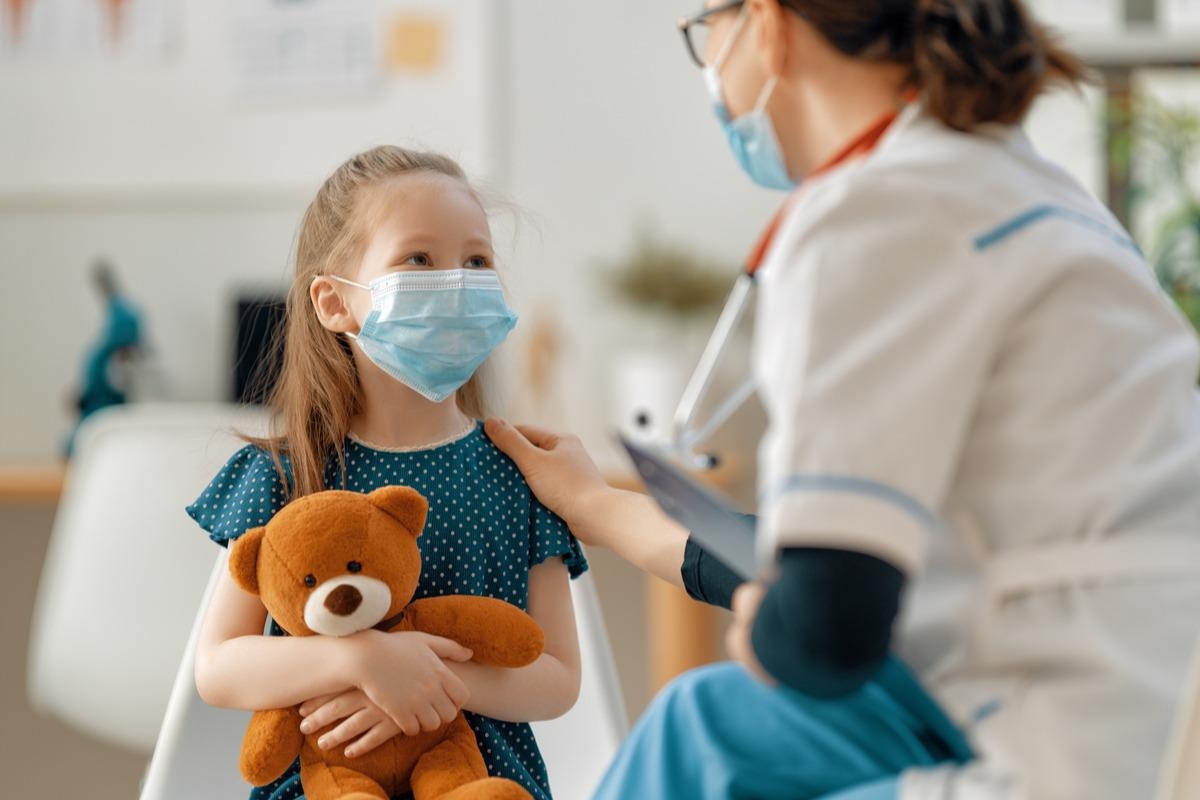As of April 12, 2022, the coronavirus disease 2019 (COVID-19) pandemic has taken over 6.2 million lives, with over 500 million cases reported worldwide. However, the severe acute respiratory syndrome coronavirus 2 (SARS-CoV-2) has mostly spared children however who typically develop asymptomatic or mild disease following infection.
A new Journal of Infection study describes the findings in children who contracted SARS-CoV-2 infection in England.
Study: Very Low Rates of Severe COVID-19 In Children Hospitalised with Confirmed SARS-Cov-2 Infection in London, England. Image Credit: Yuganov Konstantin / Shutterstock.com
Introduction
The success of mass vaccination programs against SARS-CoV-2 is based on the observed reduction in severe and fatal outcomes following SARS-CoV-2 infection in adults, even as infection rates rise. The protection conferred by vaccines against these undesirable events is a major reason to extend vaccination coverage. Moreover, the rise in vaccination coverage has led to the relaxation of restrictions on public gatherings and mass movement, even as new SARS-CoV-2 variants emerge with increasing rates of transmission.
Fatal outcomes and hospitalization rates in children and young people (CYP) with COVID-19 are uncommon. Notably, the majority of CYP with COVID-19 who have been hospitalized are there because of some other indication and the presence of the virus was detected purely incidentally on screening prior to admission.
About the study
The current study looked at COVID-19-positive CYP admitted to a large teaching hospital over a period of 14 months, during which the SARS-CoV-2 Alpha, Delta, and Omicron variants rose to dominance, successively. The 147 patients ranged in age from 0 to 18 years and all were confirmed to be positive for COVID-19 by the polymerase chain reaction (PCR) assay.
The study participants included those incidentally diagnosed as COVID-19-positive, those hospitalized for another reason to which COVID-19 could possibly have contributed, and those with severe COVID-19 in whom the infection was the primary cause of the hospitalization illness. The number of cases in the first two groups showed a close correlation with the rate of infection in the community.
Conversely, the most severe COVID-19 hospitalized cases among CYP in this hospital occurred during the Alpha wave. During the next two waves, CYP had very few hospitalizations, even though the number of infections in the community was very high for both Delta and Omicron.
Study findings
Among CYP admitted with neurological, surgical, traumatic, or other conditions, almost 60% of cases were found incidentally to be COVID-19-positive. The cases where COVID-19 might have been contributorily presented with features of other common childhood viral infections such as fever, poor appetite, decreased feeding, and respiratory symptoms.
Another group of patients had emergency presentations with acute attacks of asthma, convulsions, diarrhea and vomiting, lethargy and poor feeding,
In most CYP who were COVID-19 positive, the child was admitted for observation, with some being tested to rule out sepsis. In most cases, the CYP were kept only until shown to be free of sepsis. The majority even of those with respiratory symptoms had mild symptoms and only five out of the whole group of incidental/contributory COVID-19 required oxygen supplementation.
There were 15 severe COVID-19 cases among the CYP in this study, 10 of whom were hospitalized during the Alpha wave. All patients presented with lung inflammation. Nine of these patients were between the ages of 12 and 18 years, whereas 11 had other illnesses, of which eight were immunosuppressed.
Of the 15 CYP with severe COVID-19, 13 required oxygen supplementation, while seven required intensive care. There were no fatalities.
Implications
Similar to the results reported in previous studies and observations, the current study findings demonstrate that most children admitted to hospital with COVID-19 have been incidentally detected to be infected, or the infection played a lesser role in the presenting illness. Most of these presentations resembled those of other respiratory viruses that had a very low incidence in England during the period because of the social distancing restrictions in force at the time.
The study cohort consisted of many CYP with weakened immunity or young children below the age of three who were admitted for two days or less, mainly to rule out serious infection rather than to treat the presenting illness.
Most CYP with severe COVID-19 were adolescents, had poor immunity, and presented with pneumonitis due to COVID-19. Despite these high-risk factors, all recovered.
The small risk of severe COVID-19 will inevitably be further reduced by COVID-19 vaccination. Nonetheless, since the vaccines currently available elicit only short-term immunity, CYP is expected to continue to present with mild respiratory illness due to COVID-19.
Among CYP, hospitalization with a positive test for SARS-CoV-2 does not indicate severe COVID-19 illness, unlike the case with adults. Indeed, the risk of hospitalization among infected children is very low, especially without underlying immunosuppression or other illness. Even with the substantially increased number of cases during the Omicron wave, the number of hospitalized children with severe COVID-19 was low.
Other markers are needed to measure the incidence of severe COVID-19 in CYP.
- Zsigmond, B., Breathnach, A. S., Mensah, A., & Ladhani, S. N. (2022). Very Low Rates of Severe COVID-19 In Children Hospitalised with Confirmed SARS-Cov-2 Infection in London, England. Journal of Infection. doi:10.1016/j.jinf.2022.04.020.
